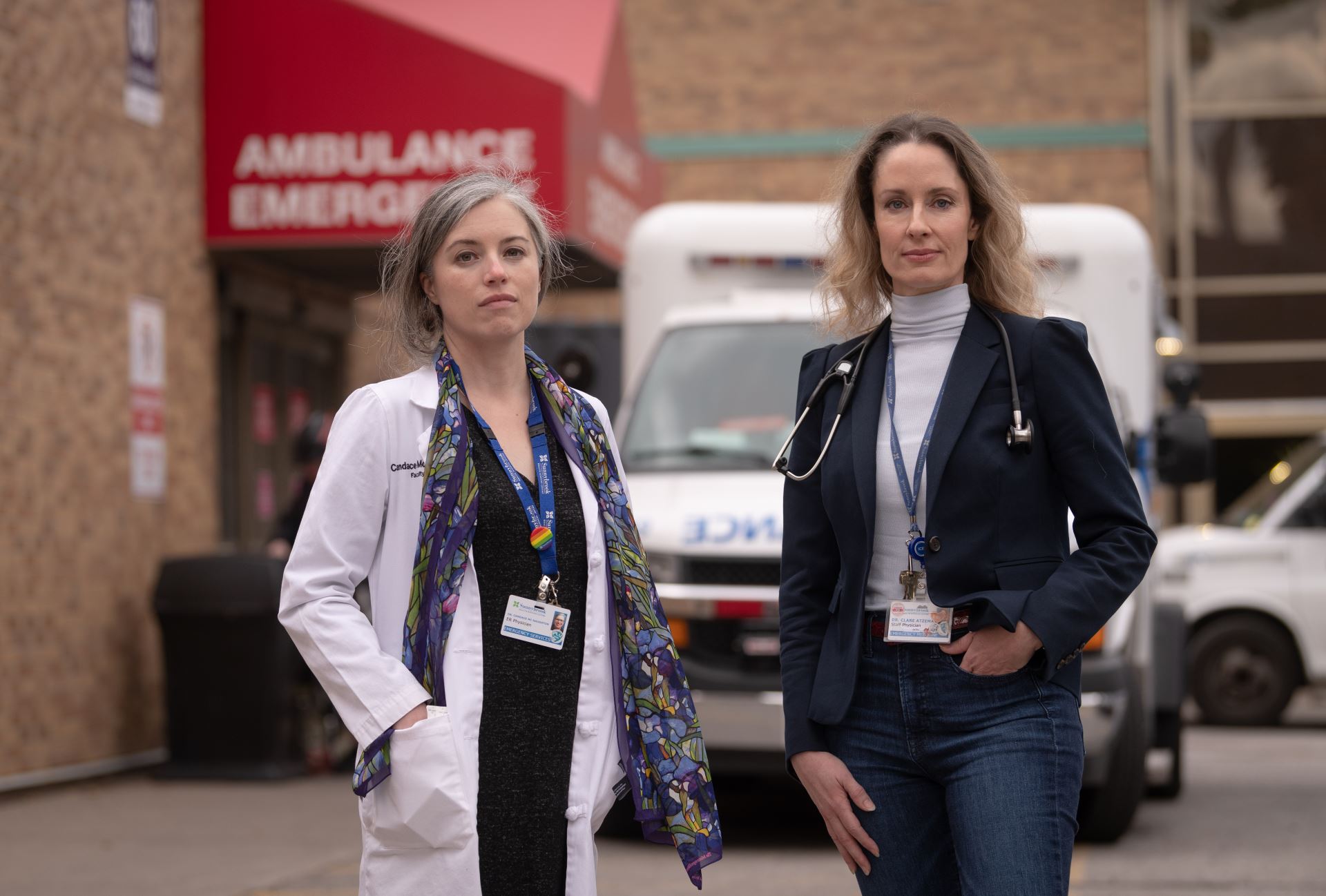Integrated Community Research
The Integrated Community Care research program at Sunnybrook Research Institute (SRI) researches ways to improve the outpatient care provided in specialty clinics, primary care, and in the emergency department, including but not limited to the following:
- Cardiovascular diseases like high blood pressure, heart failure, and atrial fibrillation in the emergency department, and their post-emergency department care
- COPD care, including use of wearable and other remote monitoring devices that enable patient monitoring and feedback
- Diabetes care in the clinic and community
- Improving emergency department wait times
- Opioid-use disorder: treatments and outcomes
- Optimizing the emergency department experience of elderly patients
- Post-thrombotic syndrome: prevention and management
- The care of patients with breast cancer in primary care
- Basic research using next generation sequencing technologies to capture viruses (such as COVID-19) from patient samples, generating whole genome sequences in real-time

Our scientists often use large, linked healthcare databases that include all Ontarians, in order to identify care gaps experienced by patients with chronic diseases like diabetes, high blood pressure, breast cancer, COPD, and breast cancer, for example. Using this big data, they can ‘map’ the patient journey from a hospital clinic to the family doctor, to an emergency department visit, etc, to help to understand how this system of care can be altered to prevent patient outcomes like hospitalizations or even death. Perhaps an early follow-up appointment with the family doctor after an emergency department visit for heart failure can prevent a patient from needing to return to the emergency department, and then being hospitalized. Perhaps community support of diabetes care can prevent blindness in these patients. Perhaps monitoring a patient with COPD with wearables can prevent an emergency department visit. Our scientists answer these questions with their research. Their work has been published in the top medical journals in the world.
Our scientists also perform clinical research (research in real time, with patients) in the emergency department and in our clinics, in order to test new treatments and interventions that might address some of the healthcare gaps that they have identified using the large linked health databases. Our goal is to provide the highest level of care to the patients we see in our clinics and emergency department, and to integrate that care with the care provided in the community, for a true “system” of wraparound, best-in-class healthcare that is supported by cutting edge research.
Director
Dr. Clare Atzema
view profile


